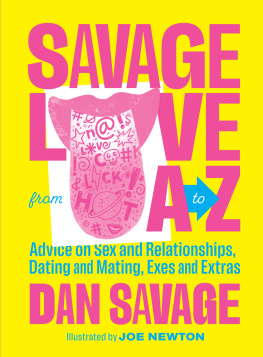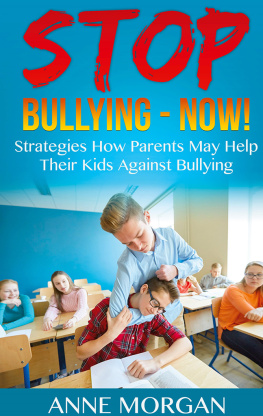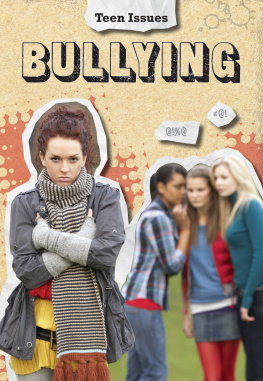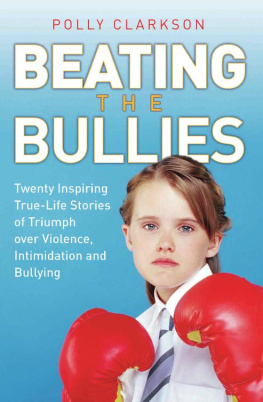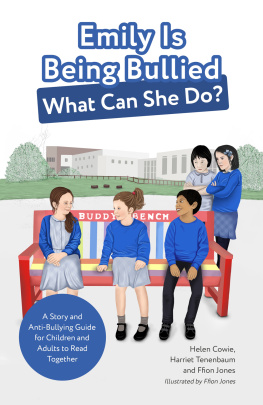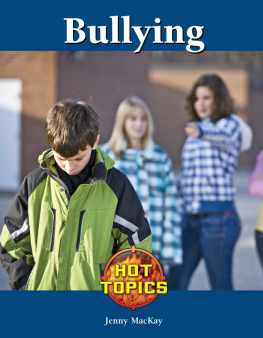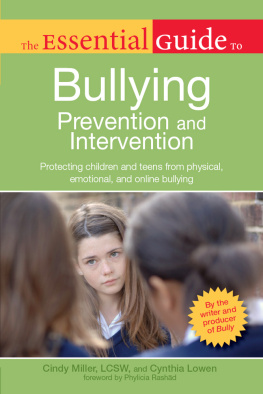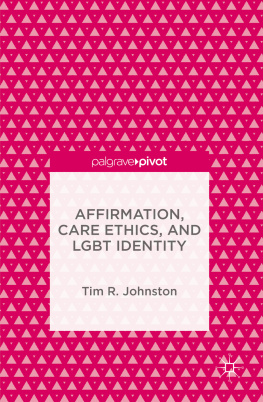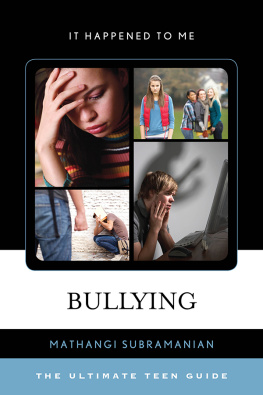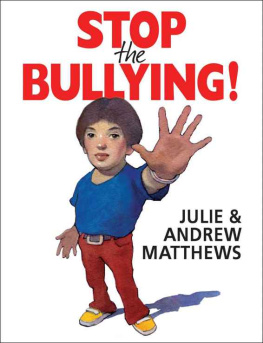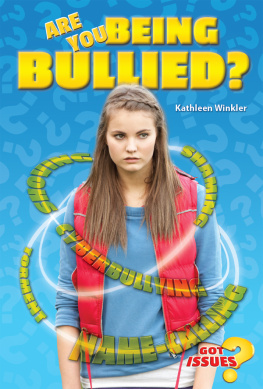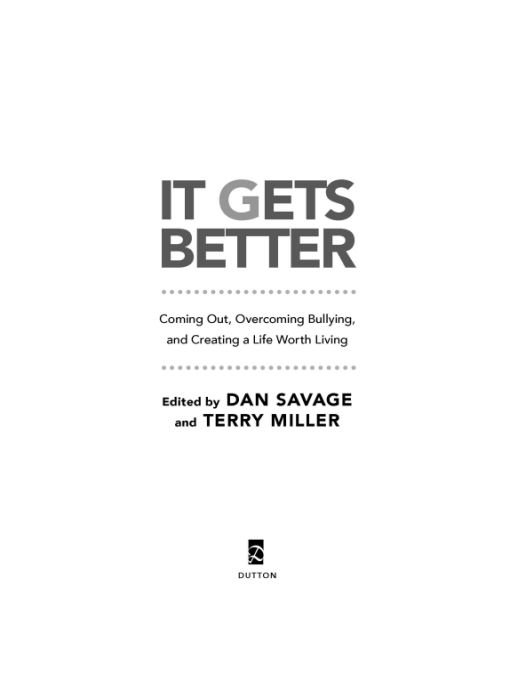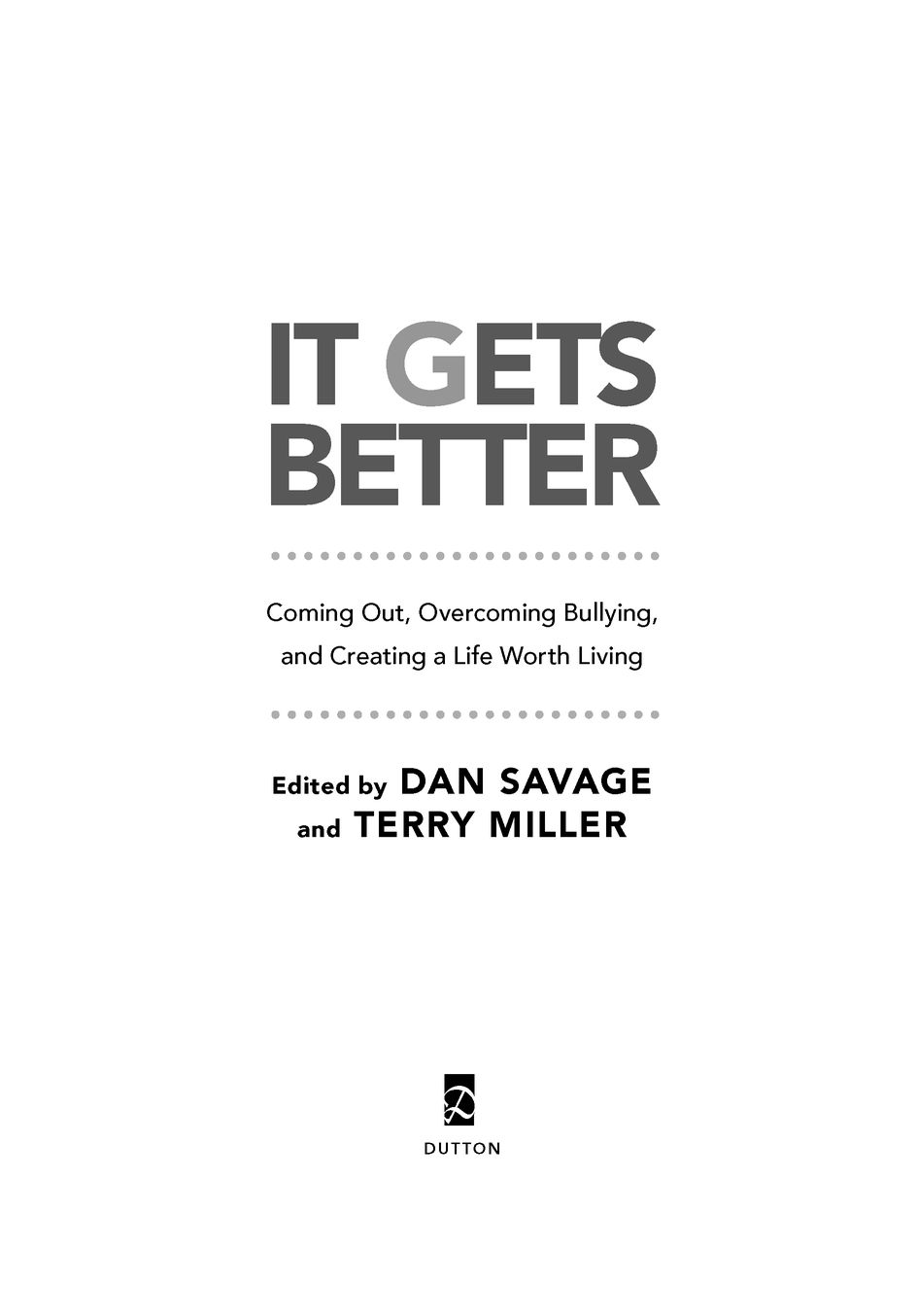Table of Contents
Also by Dan Savage
Savage Love: Straight Answers from Americas Most Popular Sex Columnist
The Kid: What Happened After My Boyfriend and I Decided to Go Get Pregnant
Skipping Towards Gomorrah: The Seven Deadly Sins and the Pursuit of Happiness in America
The Commitment: Love, Sex, Marriage, and My Family
For all the LGBT kids...
You gotta give em hope.
HARVEY MILK
STAY WITH US
by Jules Skloot
BROOKLYN, NY
Okay. Listen up, people.
It gets better. You being here makes this world a more blessed place. Theres art to be made. And there are songs to be sung. Theres so much to learn about yourself. There are sexy people to make out with. Yeah.
Theres joy coming for you. So stay with us. It gets better.
Jules Skloot is a performer, choreographer, and educator working to make things better every day in Brooklyn, New York.
INTRODUCTION
One hundred videos.
That was the goal, and it seemed ambitious: one hundred videosbest-case scenario: two hundred videosmade by lesbian, gay, bisexual, and transgender adults for lesbian, gay, bisexual, and transgender youth.
I was sitting in a hotel room in Bloomington, Indiana, when I began to suspect that we were going to see a lot more than one hundred videos. The video that I had made with my husband, Terry, a week earlier, the very first It Gets Better video, had been live on YouTube for just a few hours when e-mails and likes and friend requests started coming in so fast that my computer crashed. The second It Gets Better video arrived within twenty-four hours. Three days later we hit one hundred videos. Before the end of the first week, we hit one thousand videos.
Terry and I were relieved to learn that we werent the only people out there who wanted to reach out to LGBT kids in crisis.
Justin Aaberg was just fifteen when he killed himself in the summer of 2010. He came out at thirteen, and endured years of bullying at the hands of classmates in a suburban Minnesota high school. Justin hanged himself in his bedroom; his mother found his body.
Billy Lucas, also fifteen, wasnt gay-identified but he was perceived to be gay by his classmates in Greensburg, Indiana. His tormentors threatened him, called him a fag, and urged him to kill himself. Billy hanged himself in a barn on his grandmothers property in early September of 2010. His mother found his body.
Reading about Justin and Billy was emotionally crushingI was particularly outraged to learn that Christian parents were blocking efforts to address the rampant anti-gay bullying at Justins school, claiming that doing so would somehow infringe upon the religious freedom of their straight childrenand I began to think about the problem of anti-gay bullying.
I was aware of anti-gay bullying, of course. I had been bullied in the Catholic schools my parents sent me to; my husband endured years of much more intense bullyingits amazing he survivedat the public high school he attended; I knew that many of my LGBT friends had been bullied. But it wasnt something we talked about or dwelt on.
I was stewing in my anger about what had been done to Justin and Billy when I read this comment, left on a blog post I wrote about Billy: My heart breaks for the pain and torment you went through, Billy Lucas. I wish I could have told you that things get better.
What a simple and powerful truth. Things get betterthings have gotten better, things keep getting betterfor lesbian, gay, bisexual, and transgender people.
I knew that to be true because things had certainly gotten better for me.
I came to fully understand that I was gaythat I had always been gaywhen I was a thirteen-year-old boy being bullied at a Catholic school on the north side of Chicago. I became increasingly estranged from my parents at a time when I needed them most because I was working so hard to hide who I was from them. Five years later, I found the courage to start coming out. Coming out is a long process, not a single event, and I tested the waters by telling my eldest brother, Billy, before telling my mom or dad. Billy was supportive and it helped me decide to tell my mother, which would be the hardest thing I had yet done in my life. Because coming out in 1982 didnt just mean telling my mother that I was gay. It meant telling her that I would never get married, that I would never be a parent, that my professional life would be forever limited by my sexuality.
Eight years after coming out, I would stumble into a rewarding and unlikely career as a sex-advice columnist, of all things, and somehow leverage that into a side gig as a potty-mouthed political pundit. And fifteen years after coming out, I would adopt a son with the love of my lifethe man I would marryand, with him at my side, present my parents with a new grandchild, my siblings with a new nephew.
Things didnt just get better for me. All of the gay, lesbian, bisexual, and transgender adults I knew were leading rich and rewarding lives. We werent the same people and we didnt have or want the same thingsgay or straight, not everyone wants kids or marriage; people pursue happiness in different waysbut we all had so much to be thankful for, and so much to look forward to. Our lives werent perfect; there was pain, heartbreak, and struggle. But our lives were better. Our lives were joyful.
What was to be gained by looking backward? Why dwell on the past?
There wasnt anything we could do about the bullying we had endured in school and, for too many of us, at the hands of our families. And it didnt seem like there was anything we could do about or for all the LGBT kids who were currently being bullied.
A bullied gay teenager who ends his life is saying that he cant picture a future with enough joy in it to compensate for the pain hes in now. Justin and Billyand, as that terrible September ground on, Seth and Asher and Tyler and Raymond and Codycouldnt see how their own lives might get better. Without gay role models to mentor and support them, without the examples our lives represent, they couldnt see how they might get from bullied gay teenager to safe and happy gay adult. And the people gay teenagers need mosttheir own parentsoften believe that they can somehow prevent their children from growing up to be gayor from ever coming outby depriving them of information, resources, support, and positive role models. (Justin Aabergs parents knew he was gay, and were supportive.)
That fall, as I thought about Justin and Billy, I reflected on how frequently Im invited to speak at colleges and universities. I address audiences of gay and straight students, and I frequently talk about homophobia and gay rights and tolerance. But I dont get invited to speak at high schools or middle schools, the places where homophobia does the most damage. Gay kids trapped in middle and high schools would benefit from hearing from LGBT adultslives could be savedbut very few middle or high schools would ever invite gay adults to address their student bodies. Acknowledging the existence of LGBT people, even in sex-ed curriculums, is hugely controversial. A school administrator who invited a gay adult to address an assembly before there was a crisisbefore a bullied gay teenager took his own lifewould quickly find herself in the crosshairs of homophobic parents and bigoted Christian organizations.


